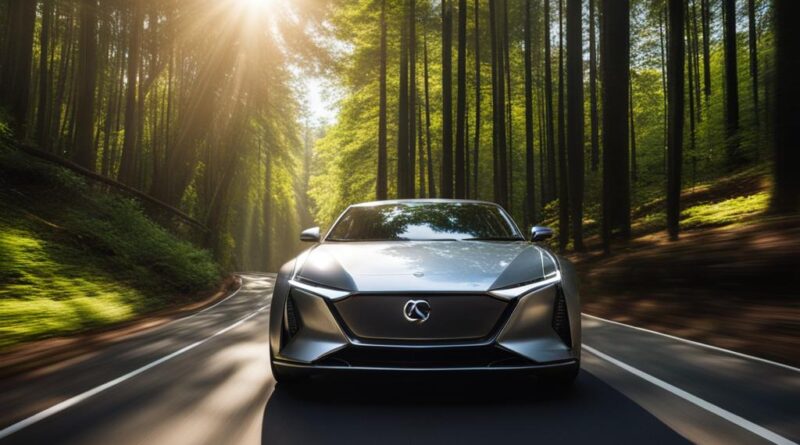Civil Car Coverage: Protect Your Journey
Civil car coverage is essential to protect your vehicle and ensure peace of mind on the road. With the right car insurance, you can have tailored coverage options that meet your specific needs as a civil car owner. Whether you’re looking for affordable coverage or comprehensive protection, it’s important to explore your options and find the plan that best suits your requirements.
Key Takeaways:
- Car insurance provides essential coverage for civil car owners.
- Explore your options to find the plan that meets your needs.
- Consider both affordability and comprehensive protection.
- Regularly review your coverage and make necessary adjustments.
- Protect your vehicle and have peace of mind on the road.
Understanding Rideshare and Delivery Driver Coverage
Rideshare and delivery drivers have unique insurance requirements. When you’re logged on or accepting trips, platforms like Uber provide insurance coverage that meets or exceeds the required standards. When you’re offline, your personal auto insurance will cover you, provided you maintain the mandatory minimum limits and provide proof of insurance. It’s important to understand the coverage provided by your rideshare or delivery platform to ensure you’re adequately protected in case of an accident.
As a rideshare or delivery driver, you are essentially acting as a business when you’re on the road. Therefore, your insurance needs are different from those of a regular private vehicle owner. The coverage provided by your rideshare or delivery platform fills the gap between your personal insurance and the additional risks you encounter while working.
When you’re logged onto the platform and waiting for a ride request or delivering an order, the platform’s insurance usually kicks in. This coverage includes liability insurance, which protects you if you cause an accident that results in property damage or bodily injury to others.
While you’re offline, your personal auto insurance policy will be in effect. However, it’s essential to check with your insurance provider to ensure you have the necessary coverage while using your vehicle for rideshare or delivery services. Many personal policies include exclusions for commercial activities, so it may be necessary to add an endorsement or consider obtaining a separate commercial auto insurance policy.
It’s important to note that different rideshare and delivery platforms may have varying insurance requirements and coverage limits. Make sure to review the details provided by your platform and communicate with your insurance provider to ensure you have the appropriate coverage in place.
“Understanding the insurance coverage provided by your rideshare or delivery platform is crucial for protecting yourself and your assets.”
By familiarizing yourself with the insurance requirements and coverage options, you can ensure that you have the necessary protection while working as a rideshare or delivery driver. It’s also advisable to regularly review your insurance policies to make any necessary adjustments as your needs and circumstances change.
Coverage When You’re Offline
While you’re offline and not actively providing rideshare or delivery services, your personal auto insurance is in effect. This means that you must maintain personal automobile insurance at mandatory minimum limits and provide proof of insurance to drive and deliver with a civil car. Coverage to repair your car when you’re en route or on a trip is contingent on your personal insurance, including comprehensive and collision coverage. It’s important to have these coverages in place to protect your vehicle in case of damage.
When you’re not logged on to the rideshare or delivery app and not actively providing services, your personal auto insurance comes into play. Personal auto insurance is a requirement for driving and delivering with a civil car, and you need to maintain it at the minimum limits set by your state. This insurance coverage is crucial for any repairs your car may need while you’re on the road or during your trip. To ensure comprehensive protection for your vehicle, your personal auto insurance should include both comprehensive and collision coverage.
The Importance of Personal Auto Insurance
Personal auto insurance is vital for protecting yourself and your vehicle when you’re not actively engaged in rideshare or delivery services. It covers expenses related to damages that occur while you’re offline, including repairs to your vehicle, medical bills, and liability claims brought against you. Without personal auto insurance, you may be financially responsible for these costs, which can be significant.
Comprehensive coverage is a key component of personal auto insurance that provides protection against non-collision incidents such as theft, vandalism, natural disasters, and more. This coverage ensures that you’re financially safeguarded if any of these unfortunate events happen to your vehicle while you’re not providing services. Collision coverage, on the other hand, covers damages resulting from collisions with other vehicles or objects.
Remember, your personal auto insurance with comprehensive and collision coverage is crucial to protect your vehicle when you’re offline. It provides the necessary financial security in case of damage or accidents that occur while you’re not actively engaged in rideshare or delivery services.
Having comprehensive and collision coverage as part of your personal auto insurance policy ensures that you are fully protected, even when you’re not actively driving or delivering with a civil car. These coverages offer peace of mind by covering repair costs for your vehicle in various situations, making it easier to get back on the road and continue your rideshare or delivery activities when you’re ready.
| Benefits of Personal Auto Insurance Coverage when You’re Offline |
|---|
| Financial protection in case of damages or accidents while not actively providing rideshare or delivery services |
| Coverage for repairs to your vehicle caused by non-collision incidents |
| Protection against theft, vandalism, and natural disasters |
| Peace of mind knowing that your personal auto insurance has you covered |
Having the right coverage in place when you’re offline is crucial to protect your vehicle and your financial well-being. Make sure to review your personal auto insurance policy and verify that it includes both comprehensive and collision coverage. This way, you can enjoy the peace of mind that comes with knowing you’re fully covered, even during downtime.
Coverage When You’re Online and Available for a Trip
When you’re online and available for a rideshare or delivery trip, your platform like Uber provides third-party liability insurance. This coverage varies depending on the law of your state but typically includes coverage for injuries and property damage.
The coverage limits are usually set at $50,000 per person and $100,000 per accident for injuries, and $25,000 in property damage per accident. Depending on your state’s laws, additional coverage options may be available, such as coverage for hit-and-run accidents or accidents caused by uninsured or underinsured drivers.
It’s important to note that this coverage provided by the platform like Uber is specifically for when you’re logged in and available for trips. When you’re offline, your personal auto insurance will be in effect, provided you maintain the mandatory minimum limits and provide proof of insurance.
“Having third-party liability insurance coverage when you’re online and available for a trip is crucial. It ensures that you’re protected in case of any accidents or damages that may occur during your rideshare or delivery trips.”
Coverage When You’re En Route or on a Trip
When you’re en route or on a trip as a rideshare or delivery driver, it’s crucial to have the right insurance coverage to protect yourself and your vehicle. Fortunately, Uber provides insurance coverage that ensures your peace of mind while you’re on the road.
As a rideshare or delivery driver, Uber’s insurance coverage includes:
- At least $1,000,000 for property damage
- Insurance for injuries to riders and third parties involved in an accident that you’re at fault for
But that’s not all. Uber’s coverage also extends to the cost of repairing your car if it gets damaged during a trip en route, up to the vehicle’s actual cash value with a deductible of $2,500.
It’s important to note that this coverage is contingent on your personal insurance, including comprehensive and collision coverage. This means you must have your own comprehensive and collision coverage on your vehicle to ensure you’re adequately protected regardless of who is at fault.
Having comprehensive and collision coverage on your personal insurance policy is crucial because it provides additional protection for your vehicle in case of damage. Comprehensive coverage typically covers non-collision incidents such as theft, vandalism, fire, natural disasters, and damage caused by animals. On the other hand, collision coverage covers damage to your vehicle resulting from a collision with another vehicle or object.
By having comprehensive and collision coverage on your personal policy, you can ensure that your vehicle is protected both on and off the job, providing you with peace of mind and avoiding costly out-of-pocket expenses for repairs or replacement.
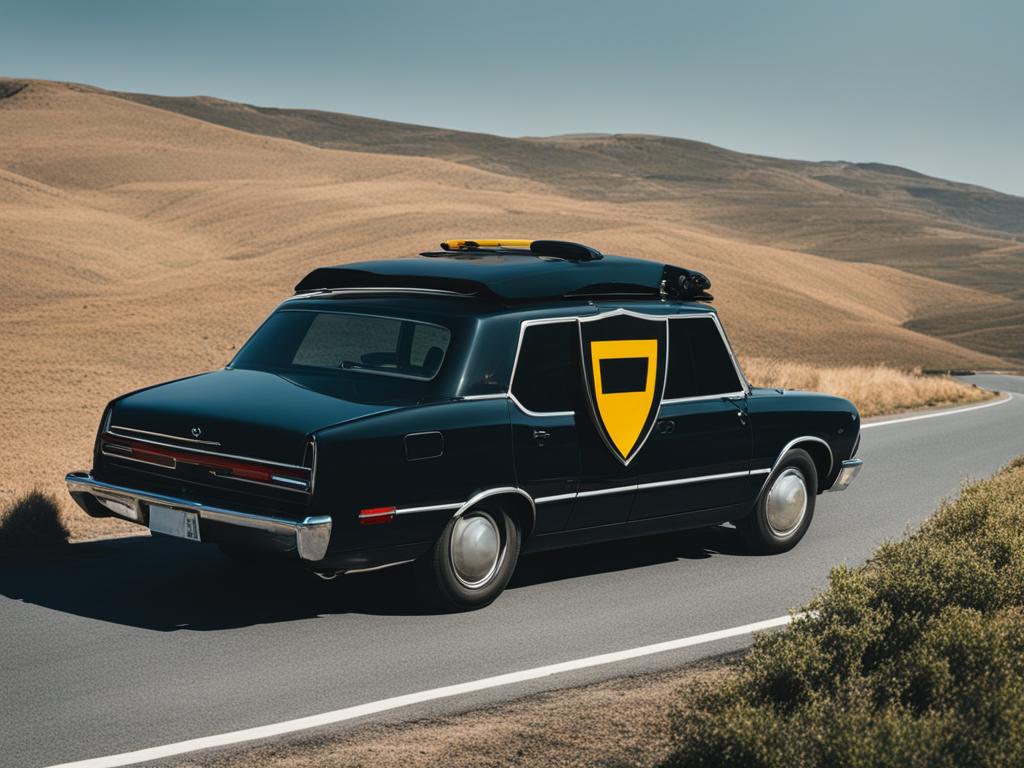
With Uber’s insurance coverage and your personal comprehensive and collision coverage in place, you can enjoy your rideshare or delivery trips with confidence, knowing that you’re fully protected.
| Insurance Coverage | Property Damage | Injury to Riders and Third Parties | Cost to Repair Your Vehicle | Deductible |
|---|---|---|---|---|
| Uber’s Insurance Coverage | At least $1,000,000 | Included | Up to actual cash value | $2,500 |
| Personal Comprehensive and Collision Coverage | Varies by policy | Varies by policy | Varies by policy | Varies by policy |
Optional Injury Protection
As a rideshare or delivery driver, it’s crucial to have the right level of coverage to protect yourself and your loved ones in case of an accident. In addition to the standard insurance provided by platforms like Uber, optional injury protection can provide extra peace of mind by offering additional coverage for medical expenses, disability payments, and survivor benefits.
Optional injury protection is available in select states and is designed specifically for drivers in the rideshare and delivery industry. This coverage goes beyond the basic liability insurance and provides enhanced financial protection to help you and your family navigate the challenges that may arise from an accident.
One of the key benefits of optional injury protection is the coverage it provides for medical expenses. In the event of an accident, this coverage ensures that your medical bills are taken care of without any deductibles, allowing you to focus on your recovery instead of worrying about the financial burden.
Furthermore, optional injury protection also includes disability payments. If you’re unable to work due to injuries sustained in an accident, this coverage can provide you with regular payments to help replace your lost income during your recovery period. This financial support can be invaluable in maintaining your financial stability during a challenging time.
In the unfortunate event of a fatal accident, optional injury protection also offers survivor benefit payments. These payments are provided to your family members, ensuring that they are taken care of financially in the aftermath of the tragedy. This can provide some comfort and support during an incredibly difficult time.
The Benefits of Optional Injury Protection:
| Coverage | Description |
|---|---|
| Medical Expenses | Full coverage for medical bills with no deductibles |
| Disability Payments | Regular payments to replace lost income during recovery |
| Survivor Benefits | Financial support for your family members in case of a fatal accident |
Optional injury protection is a valuable addition to your insurance coverage as a rideshare or delivery driver. It ensures that you have the necessary resources to recover from an accident and provides financial support to your loved ones in the event of a tragedy. While this coverage is optional, it offers additional peace of mind and security for you and your family.
Coverage for Commercial Drivers
Commercial drivers who use a commercial vehicle, such as a licensed for-hire vehicle, black car, limousine, livery vehicle, or taxi, must have their own commercial insurance to drive with Uber and other ridesharing or delivery platforms. Personal auto insurance policies typically do not cover commercial use of vehicles, so it’s important for commercial drivers to have appropriate insurance coverage to protect themselves and their assets.
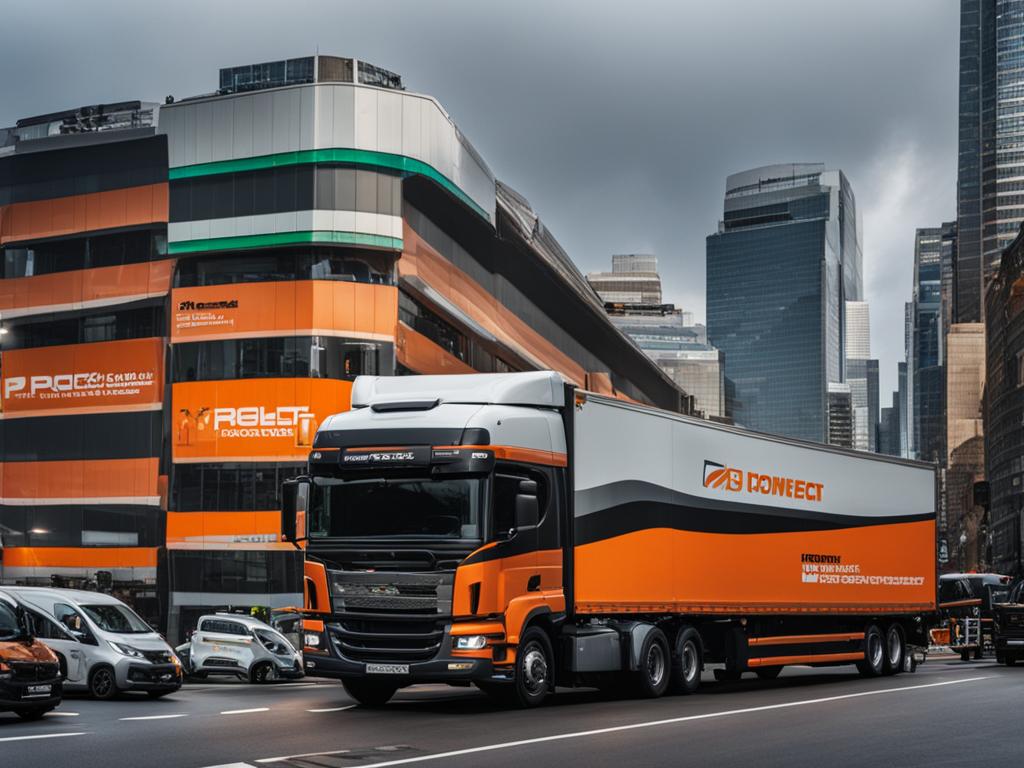
When it comes to commercial vehicle insurance, commercial drivers should consider the specific insurance requirements for their industry. Each type of commercial vehicle may have different insurance requirements, depending on factors such as the vehicle’s weight, passenger capacity, and intended use. It’s important to consult with an insurance agent or broker who specializes in commercial insurance to ensure that you are meeting all the necessary insurance requirements.
Having the right commercial vehicle insurance not only protects commercial drivers in the event of an accident but also helps them maintain compliance with local laws and regulations. In addition, it provides financial security for their business and assets, as commercial vehicles are valuable assets that require specialized insurance coverage.
Insurance Requirements for Commercial Drivers
Insurance requirements for commercial drivers can vary depending on the state and the type of commercial vehicle being used. However, there are some common types of insurance coverage that commercial drivers should consider:
| Insurance Coverage | Description |
|---|---|
| Commercial Auto Liability | Provides coverage for bodily injury and property damage liability if you are at fault in an accident while using your commercial vehicle. |
| Physical Damage Coverage | Covers damage to your commercial vehicle caused by accidents, theft, vandalism, or other covered perils. |
| Uninsured/Underinsured Motorist Coverage | Protects you and your passengers if you are involved in an accident with an uninsured or underinsured driver. |
| Cargo Insurance | Covers the value of the cargo you are transporting in case of theft, damage, or loss. |
These are just a few examples of the insurance coverages available for commercial drivers. The specific insurance requirements and coverage options may vary depending on the nature of your commercial driving business and the regulations in your state.
Commercial drivers should work closely with their insurance provider to ensure they have the right insurance coverage to meet their needs and comply with all legal requirements.
Understanding Liability Insurance
Liability insurance is a crucial component of car insurance coverage. It provides financial protection in case you are held legally responsible for causing injury or damage to someone else while driving. In fact, liability insurance is required by law in most states, ensuring that all drivers have the necessary coverage to handle potential claims.
There are two main types of liability coverage that are typically included in car insurance policies: bodily injury liability coverage and property damage liability coverage.
Bodily Injury Liability Coverage
Bodily injury liability coverage helps pay for medical expenses if you are found at fault in an accident that resulted in injuries to other people. This coverage can help cover the cost of hospitalization, surgeries, medications, rehabilitation, and other medical treatments needed by the injured party.
In the event of a lawsuit, bodily injury liability coverage can also help cover legal fees if you are sued for the injuries you caused. It is important to carry sufficient limits of bodily injury liability coverage to protect yourself from potential lawsuits that could lead to costly settlements or judgments.
Property Damage Liability Coverage
Property damage liability coverage helps pay for repairs or replacement if you cause damage to someone else’s property. This includes vehicles, buildings, fences, or other structures. Property damage liability coverage can also help cover legal fees if you are sued for the property damage you caused.
It’s important to note that liability insurance only provides coverage for injuries or damages that you are responsible for. It does not cover your own medical expenses or the cost to repair your vehicle. To protect yourself and your vehicle, you may need additional coverage options such as personal injury protection or collision coverage.
| Bodily Injury Liability Coverage | Property Damage Liability Coverage | |
|---|---|---|
| What it covers | Coverage for injuries to others caused by the insured | Coverage for damage to someone else’s property caused by the insured |
| Typical limits | Varies by state, typically represented as two amounts: per person and per accident (e.g., $50,000 per person and $100,000 per accident) | Varies by state, typically represented as a single amount per accident (e.g., $25,000) |
| Importance | Required by law in most states | Required by law in most states |
Liability insurance is essential for protecting yourself and your assets in case of an accident. It provides coverage for medical expenses and property damage that you may be legally responsible for. By ensuring you have adequate liability coverage, you can have peace of mind knowing that you are financially protected from potential lawsuits and claims.
Choosing Liability Coverage Limits
When it comes to selecting liability coverage limits for your car insurance, it’s important to consider the requirements set by your state as well as your personal circumstances. Liability coverage limits typically consist of three components: bodily injury liability limit per person, bodily injury liability limit per accident, and property damage liability limit.
The bodily injury liability limit per person refers to the maximum amount your insurance company will pay for injuries suffered by a single person in an accident where you are at fault. On the other hand, the bodily injury liability limit per accident sets the maximum amount your insurer will pay for injuries suffered by all individuals involved in a single accident.
The property damage liability limit, as the name suggests, determines the maximum amount your insurance company will pay for damage caused to someone else’s property. This could include repairs to another person’s vehicle, as well as damage to structures, fences, or other property affected by the accident.
Choosing the appropriate liability coverage limits is crucial for ensuring adequate protection for you and your assets. While state requirements may provide a minimum baseline, it’s often recommended to opt for higher coverage limits to protect yourself from potentially significant financial burdens in the event of an accident.
“Setting liability coverage limits that match your needs and potential risks is essential for protecting your financial interests.”
By opting for higher liability coverage limits, you can mitigate the risk of having to pay out-of-pocket if the damages resulting from an accident exceed your coverage limits. It’s important to carefully assess your personal situation, including factors such as your assets, income, and potential liability risks, to determine the appropriate coverage limits for your car insurance policy.
Example Liability Coverage Limits
Here’s an example table illustrating different liability coverage limits:
| Liability Coverage Limits | Bodily Injury Liability Limit per Person | Bodily Injury Liability Limit per Accident | Property Damage Liability Limit |
|---|---|---|---|
| State Minimum | $25,000 | $50,000 | $10,000 |
| Recommended | $100,000 | $300,000 | $100,000 |
| Higher Protection | $250,000 | $500,000 | $250,000 |
Note: These limits are for illustrative purposes only and may not reflect the specific requirements or recommendations of your state or insurance provider.

When choosing liability coverage limits, it’s essential to strike a balance between adequate protection and affordability. While higher coverage limits may result in higher premiums, they provide greater peace of mind and financial security in the face of potential liabilities.
Remember to review your coverage regularly and reassess your liability coverage limits as your circumstances change. It’s always wise to consult with an insurance professional who can help you navigate the complexities of liability coverage and ensure you make informed decisions.
Comprehensive Car Insurance Explained
When it comes to protecting your vehicle, comprehensive car insurance is an important coverage option to consider. It provides financial assistance for replacing or repairing your car in non-collision incidents such as theft or damage caused by events like vandalism, fire, natural disasters, falling objects, or animals. Also referred to as “other than collision” coverage, comprehensive insurance offers comprehensive protection for unforeseen incidents.
While comprehensive coverage is often required by lenders for financed or leased vehicles, it is optional for owned vehicles. However, choosing comprehensive car insurance can provide you with added peace of mind and security, knowing that you’re financially protected against a wide range of non-collision incidents.
What Does Comprehensive Coverage Include?
Comprehensive car insurance typically includes coverage for the following non-collision incidents:
- Theft
- Vandalism
- Fire
- Natural disasters (e.g., hurricanes, tornadoes, earthquakes)
- Falling objects
- Damage caused by animals
Having comprehensive coverage ensures that you’re financially protected if any of these incidents occur, saving you from incurring significant expenses to repair or replace your vehicle in such situations.
Comprehensive Deductibles and Limits
When you choose comprehensive car insurance, you will need to select a deductible and limit for your coverage. The deductible is the amount you’re responsible for paying out of pocket before your insurance coverage kicks in. Selecting a higher deductible can help lower your premiums, but it means you’ll have a higher out-of-pocket cost if you need to make a claim.
Additionally, comprehensive coverage has a limit, which is the maximum amount your policy will pay towards a covered claim. It’s essential to choose a deductible and limit that align with your budget and coverage preferences.
Comparing Comprehensive and Collision Insurance
While comprehensive insurance covers non-collision incidents, collision insurance is a separate coverage option that protects your vehicle in the event of a collision with another vehicle or object. By having both comprehensive and collision coverage, you’ll have comprehensive protection for your vehicle, ensuring that you’re financially safeguarded in various situations.
To summarize:
| Comprehensive Insurance | Collision Insurance |
|---|---|
| Covers non-collision incidents such as theft, vandalism, fire, natural disasters, falling objects, and damage caused by animals | Covers damage resulting from collisions with other vehicles or objects |
| Optional for owned vehicles, required for financed or leased vehicles | Optional for all vehicles |
| Helps pay for repairs or replacement of your vehicle in non-collision incidents | Helps pay for repairs or replacement of your vehicle in collision incidents |
By having comprehensive and collision coverage, you can have comprehensive protection that takes care of your vehicle in a variety of situations, ensuring you have peace of mind on the road.
When Is Comprehensive Coverage Recommended?
Comprehensive coverage is recommended under the following circumstances:
- If you have a financed or leased vehicle, comprehensive coverage is typically required by lenders to protect their financial interest in the vehicle.
- If the value of your vehicle is significant, comprehensive coverage provides financial protection against theft, fire, and other incidents that could result in costly repairs or replacement.
While comprehensive coverage is not mandatory for owned vehicles, it can provide valuable financial protection in case of unexpected incidents.
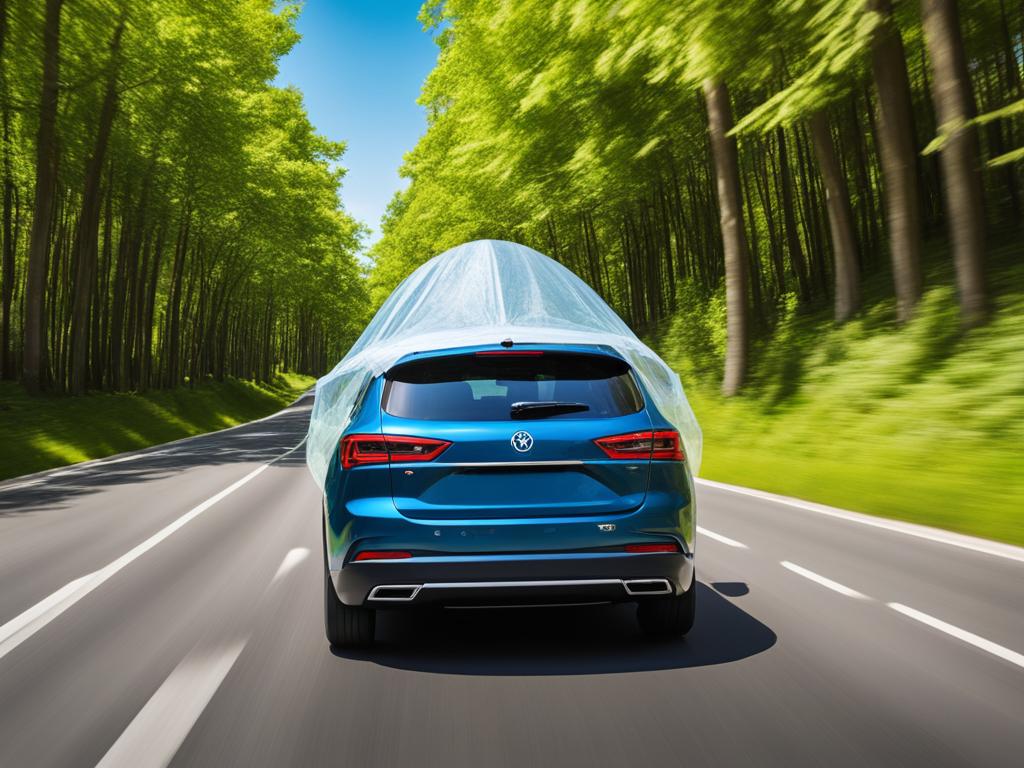
What Does Comprehensive Coverage Cover?
Comprehensive coverage provides extensive protection for your vehicle, safeguarding it against a range of incidents that are not the result of a collision. This comprehensive insurance option offers coverage for:
- Theft: Comprehensive coverage helps reimburse you for the loss or replacement of your vehicle if it’s stolen.
- Vandalism: If your car is intentionally damaged by someone, comprehensive coverage typically covers the costs of repairs.
- Natural Disasters: Comprehensive coverage includes protection for damage caused by natural disasters such as hurricanes, floods, earthquakes, and tornadoes.
- Fire Damage: If your vehicle is damaged or destroyed by fire, comprehensive insurance helps cover the cost of repairs or replacement.
- Falling Objects: If your car is damaged by falling objects like trees, branches, or debris, comprehensive coverage provides financial protection.
- Damage from Animals: Comprehensive coverage also extends to damage caused by animals, such as collisions with deer or damage from pets.
- Civil Disturbances: If your vehicle sustains damage due to civil disturbances like riots, comprehensive coverage helps cover the repair costs.
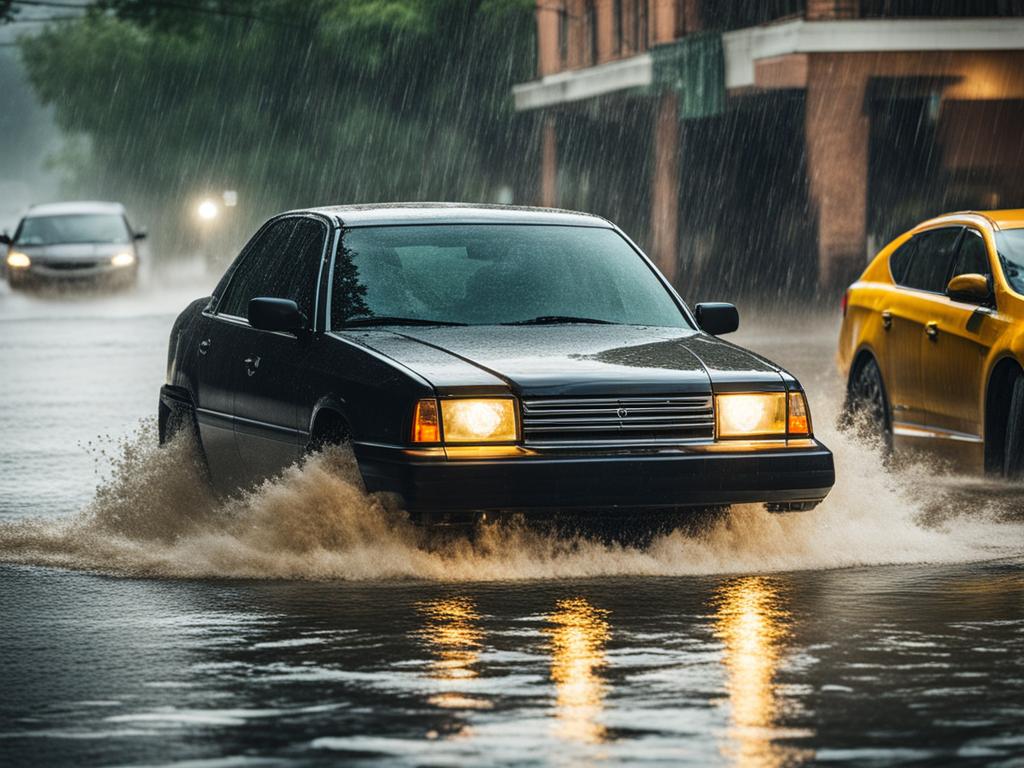
Having comprehensive coverage gives you peace of mind knowing that your vehicle is protected in various non-collision incidents. Whether it’s theft, vandalism, natural disasters, or other unforeseen events, comprehensive coverage can mitigate the financial burden of repairs or replacement.
Comprehensive Deductibles and Limits
When purchasing comprehensive insurance coverage, it is important to understand the concept of deductibles and limits. A deductible refers to the amount you are responsible for paying out of pocket towards a covered claim before your insurance coverage kicks in. On the other hand, a limit is the maximum amount your policy will pay towards a covered claim.
The Comprehensive Deductible:
When selecting a comprehensive deductible, you must consider your budget and potential out-of-pocket expenses. Typically, the higher your deductible, the lower your premiums will be. However, keep in mind that opting for a higher deductible means you will have a higher cost to pay if you need to make a claim. On the other hand, a lower deductible may result in higher premiums but can provide more financial protection in case of an incident.
Coverage Limits:
Comprehensive coverage also has a limit, which indicates the maximum amount your policy will pay towards a covered claim. It is crucial to choose a coverage limit that aligns with your budget and coverage needs. Consider your vehicle’s value, potential repair costs, and the overall financial protection you require. Selecting an appropriate limit ensures that you have adequate coverage should you need to file a claim.
It’s essential to carefully evaluate your deductible and coverage limit options when choosing comprehensive insurance coverage. By finding the right balance between a deductible that fits your budget and a coverage limit that provides sufficient protection, you can ensure peace of mind on the road.
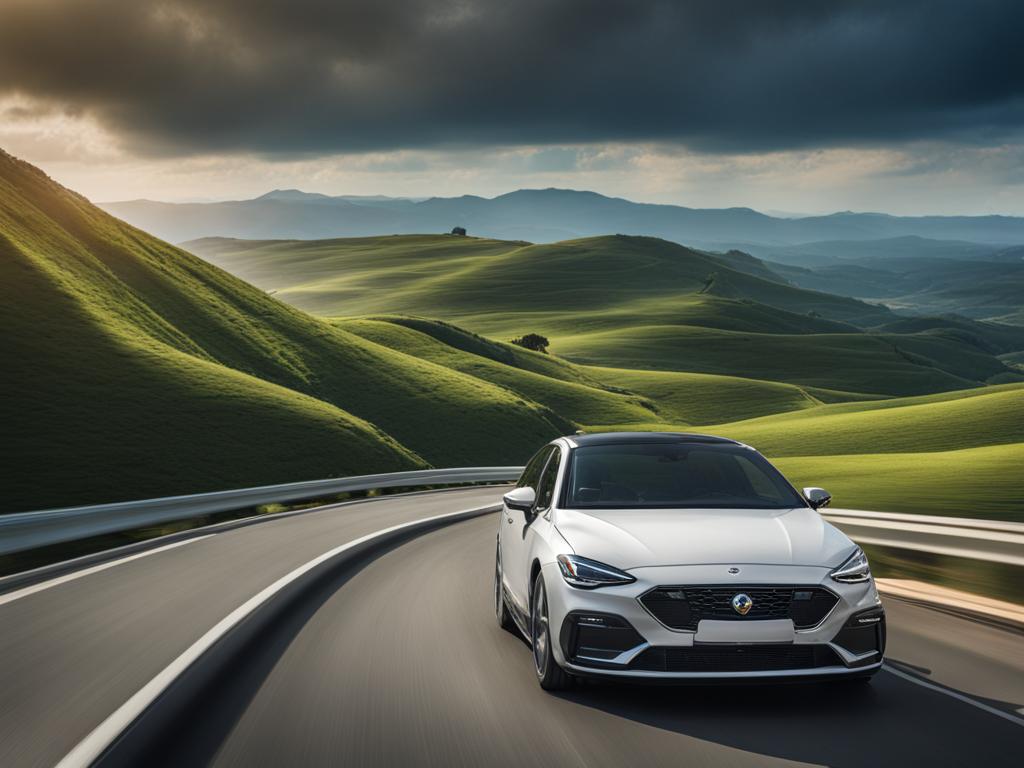
| Insurance Term | Definition |
|---|---|
| Deductible | The amount you have to pay out of pocket towards a covered claim before your insurance coverage applies. |
| Limit | The maximum amount your policy will pay towards a covered claim. |
Difference between Comprehensive and Collision Insurance
When it comes to protecting your vehicle, it’s essential to understand the difference between comprehensive and collision insurance. These two coverage options provide different levels of protection for your car in various situations.
Collision insurance primarily covers damage to your vehicle resulting from a collision with another vehicle or object. For example, if you accidentally hit another car or collide with a stationary object like a fence or pole, collision coverage will help pay for the repairs or replacement of your vehicle. This type of insurance is especially important if you frequently drive in areas with heavy traffic or if you live in an area prone to accidents.
Comprehensive insurance, on the other hand, covers damage to your vehicle that is not a result of a collision. This includes incidents such as theft, vandalism, fire, natural disasters, falling objects, and damage caused by animals. Comprehensive coverage provides financial protection for non-collision incidents that can cause significant damage to your vehicle. It’s especially valuable if you live in an area with a high theft rate or frequent severe weather events.
Having both comprehensive and collision coverage is crucial to ensure comprehensive protection for your vehicle. While collisions are common, non-collision incidents can also cause significant damage and financial loss. By having both types of coverage, you can have peace of mind knowing that you’re protected in various scenarios.
Example Scenario:
Imagine you’re driving during a severe thunderstorm, and a tree branch falls on your car, causing extensive damage. If you only have collision coverage, you won’t be able to claim the repair costs for the damage caused by the falling tree branch. However, if you have comprehensive coverage, your insurance will cover the repair or replacement expenses.
Comparison Table: Comprehensive vs. Collision Insurance
| Insurance Type | Coverage | Examples of Covered Incidents |
|---|---|---|
| Comprehensive Insurance | Covers damage not caused by collisions | Theft, vandalism, fire, natural disasters, falling objects, damage from animals |
| Collision Insurance | Covers damage caused by collisions | Accidents with other vehicles, collisions with stationary objects |
By understanding the difference between comprehensive and collision insurance, you can make informed decisions when choosing the right coverage for your vehicle. Remember to assess your individual needs, geographical location, and potential risks to ensure you have comprehensive protection for your car.
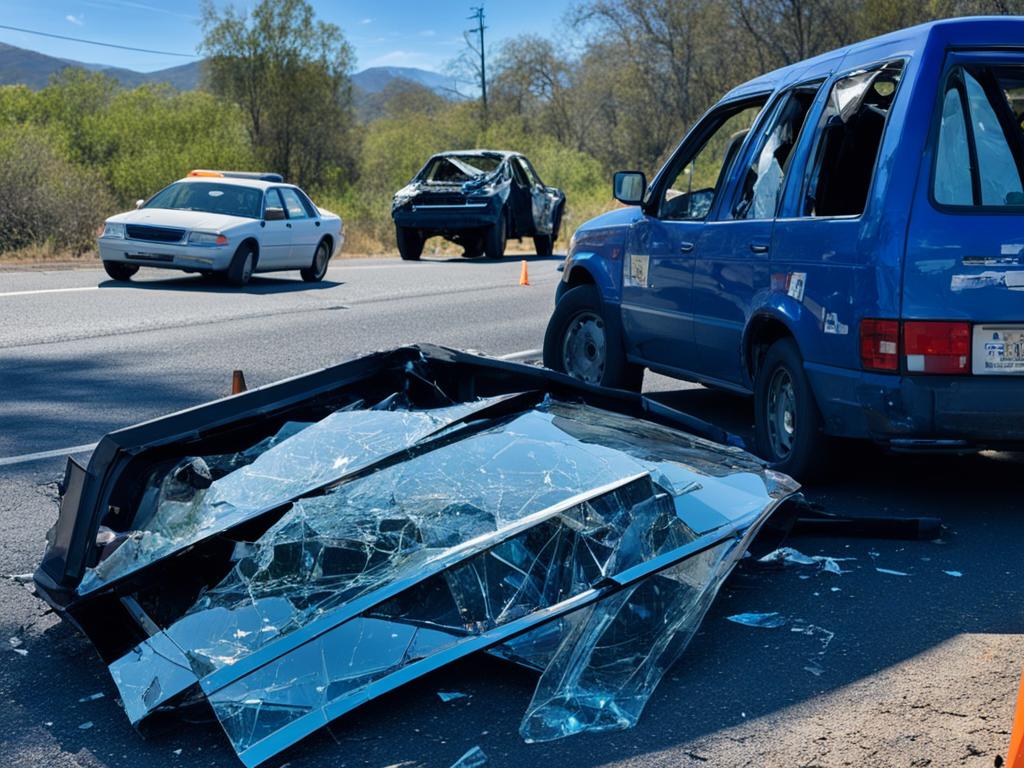
When is Comprehensive Coverage Recommended?
Comprehensive coverage is highly recommended in several situations to provide comprehensive protection for your vehicle. This type of coverage is particularly beneficial if you are financing or leasing your vehicle, as your lender will likely require comprehensive coverage to protect their financial interest in the vehicle. By having comprehensive coverage, you ensure that your investment is safeguarded against potential risks.
Moreover, comprehensive coverage is also advisable if the value of your car is significant and you would not be able to afford the cost of repairs or replacement in the event of theft or fire. Comprehensive insurance covers a wide range of incidents that are not a result of a collision, such as theft, vandalism, natural disasters, and damage caused by falling objects or animals. Having this coverage is crucial to protect your vehicle’s value and your financial well-being.
When considering whether comprehensive coverage is necessary for your peace of mind, it’s important to evaluate your specific circumstances. Take into account factors like the financing or leasing requirements, the value of your vehicle, and your ability to cover potential repair or replacement costs. By carefully assessing your situation, you can make an informed decision and ensure that you have the right level of coverage to safeguard your vehicle against unforeseen events.
Conclusion
Civil car coverage offers essential benefits and a range of options to protect your vehicle while on the road. With the right coverage, you can have peace of mind knowing that your car is financially safeguarded against accidents, theft, and vandalism. Whether you prefer basic liability coverage or comprehensive protection, it is crucial to assess your needs and select a plan that strikes the perfect balance between protection and affordability. Regularly reviewing your coverage and making necessary adjustments will ensure you are adequately protected in any situation.
By investing in civil car coverage, you secure various advantages. In the event of an unfortunate accident, your insurance can provide financial assistance for repairs or replacement, sparing you from hefty expenses. Additionally, coverage for theft and vandalism offers an added layer of protection, assuring you that your car is shielded against potential risks. Having the right plan in place not only offers peace of mind but also ensures that unexpected incidents do not disrupt your daily commute.
When selecting a civil car coverage plan, consider your individual needs, budget, and car value. Whether you are looking for cost-effective options or comprehensive protection for your valuable asset, there is a plan to suit your requirements. With a thorough evaluation of available coverage options, you can find the right plan that provides the level of protection you need at a price that fits your budget.
Remember, civil car coverage is not a set-it-and-forget-it decision. It is crucial to review your coverage regularly and make adjustments as needed. Changes in your driving habits, car usage, or personal circumstances may warrant modifications to your coverage. By staying proactive and ensuring your coverage aligns with your current needs, you can enjoy the benefits of civil car coverage and drive with confidence.
FAQ
What is civil car coverage?
Civil car coverage refers to the insurance you purchase to protect your vehicle and ensure peace of mind on the road.
What are the coverage options for civil car insurance?
The coverage options for civil car insurance vary and can include liability coverage, comprehensive coverage, collision coverage, and optional injury protection.
How can I find affordable civil car coverage?
To find affordable civil car coverage, it’s important to compare quotes from different insurance providers and consider options that meet your specific needs and budget.
What are the benefits of civil car coverage?
Civil car coverage provides essential benefits, such as financial protection in case of accidents, theft, or vandalism, and peace of mind knowing your vehicle is protected on the road.
How can I get civil car coverage quotes?
You can get civil car coverage quotes by contacting insurance providers directly or using online resources that provide quotes from multiple carriers.
What is liability coverage for a civil car?
Liability coverage for a civil car helps cover medical and legal fees if you’re held legally responsible for someone else’s injury or damage to their property.
What are the coverage benefits of comprehensive civil car coverage?
Comprehensive civil car coverage helps pay to replace or repair your vehicle if it’s stolen or damaged in an incident that is not a collision, such as fire, theft, natural disasters, or vandalism.
Are there different insurance plans available for civil car coverage?
Yes, there are different insurance plans available for civil car coverage, including basic liability coverage and more comprehensive options that provide additional protection for your vehicle.
What are the coverage options for civil car coverage?
The coverage options for civil car coverage include liability coverage, comprehensive coverage, collision coverage, and optional injury protection.
Is comprehensive car coverage necessary?
Whether comprehensive car coverage is necessary depends on various factors, such as the value of your vehicle, your budget, and any financing or leasing requirements.
What is the purpose of collision coverage?
Collision coverage primarily covers damage to your vehicle resulting from a collision with another vehicle or object.
How does rideshare and delivery driver coverage work?
Rideshare and delivery platforms like Uber provide insurance coverage that varies depending on whether you’re online and available for trips or offline.
Do I need additional insurance as a rideshare or delivery driver?
When you’re offline, your personal auto insurance will cover you as long as you maintain the mandatory minimum limits and provide proof of insurance. However, additional coverage may be necessary, and it’s important to understand the coverage provided by your rideshare or delivery platform.
What is optional injury protection for rideshare and delivery drivers?
Optional injury protection is an additional coverage option available in some states that provides extra protection for rideshare and delivery drivers, including coverage for disability payments, medical expenses, and survivor benefits in case of an accident.
Do commercial drivers need a different type of insurance?
Yes, commercial drivers who use a commercial vehicle must have their own commercial insurance to drive with ridesharing or delivery platforms.
What is the importance of liability insurance?
Liability insurance is crucial because it helps cover medical and legal fees if you’re held responsible for someone else’s injury or damage to their property.
How do I choose liability coverage limits?
When choosing liability coverage limits, it’s important to consider the minimum limits set by your state and whether additional coverage is necessary based on your specific situation and assets.
What does comprehensive coverage include?
Comprehensive coverage includes protection against incidents that are not a collision, such as theft, vandalism, fire, natural disasters, falling objects, and damage caused by animals.

